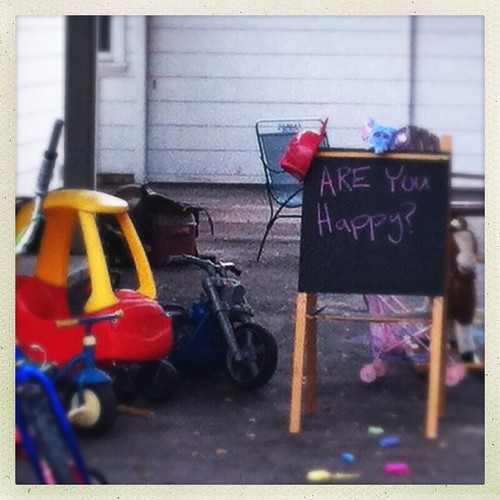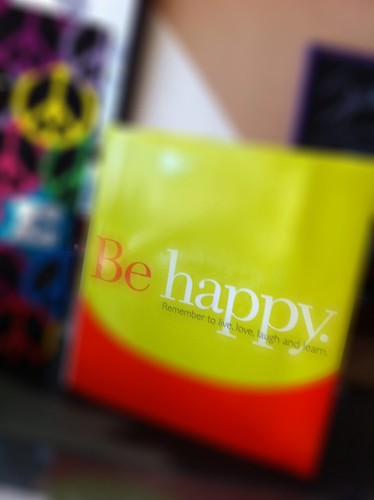When I was in London last month, I took a morning and went down to Goldsmiths University.
I went down there to interview Will Davies, a sociology professor whose great new book The Happiness Industry explores how companies came to see happiness as something they needed to cultivate in— or simply demand from— their employees.
This morning I ran across this article about a Chinese company that, as part of a recent “relaxation day,” let “workers wear masks so they don’t have to fake their facial expression through the day:”
To encourage anonymity, many wore the same expressionless, black-and-white mask with purple highlights from the Japanese animated film Spirited Away, in which an ominous, ghostly figure known as “No Face” is seen popping up in various places wearing it and confronting other characters.
There are some cool, and slightly creepy pictures, here. As the caption explains,
As a service company, its staffs must smile to customers everyday. On “No-Face Day”, the staffs wore No-Face masks to reduce pressure and relax themselves. No-Face is a silent masked creature who has no facial expressions in Japanese animated fantasy film “Spirited Away”.
One of the striking things I’ve found when working on Rest is that there’s a big literature on “detachment from the workplace,” which is a complicated way of saying that letting people get away from work— both physically and mentally— makes them better workers. People who have rich lives outside the office are better able to handle work-related pressures, are less likely to get caught up in office drama and politics, and generally work better than their all-in, leaning-forward colleagues.
But the question is, does it work? I’m arguing in Rest that while professionalism is good, this kind of “the floggings will continue until morale improves” attitude is worth resisting. If you want to do a great job, having time away from work, and cultivating a second life, is actually a better long-term strategy for you and your career.
This is an uphill battle. The modern workplace— especially in service and professional sectors, and in areas like Silicon Valley— tell us that success depends on super-high emotional involvement and investment in our jobs.
Of course, there have always been jobs in which managing your demeanor is an important part of the job: think of nurses, police, clergy, teachers, and other professionals. Indeed, being a professional has long been associated with having this kind of self-control and ability to behave in certain ways. That’s one reason “behaving professionally” is a synonym for not getting too upset, not taking insults personally, focusing on the job, etc.
But what’s novel is that while this used to be a demand in fields where you deal with other people, now everyone is expected to be happy and self-motivating, because happiness increases profitability and productivity. It’s not just the sales guy on the showroom floor who has to act happy; the mechanic changing your oil, or the accountant in back, is now expected to Be Happy, too.
It’s even worse for professionals and entrepreneurs. If you want to be successful, you need to be totally invested in your job, be prepared to work crazy hours, and demonstrate that you love what you do. (And if you don’t, there are a hundred people who just graduated from college in India and China who’ll do your job for one-tenth you salary.) It’s part of the broader dissolving of the boundaries between work and home, and the conscious effort to erase distinctions between your economic self and your other selves.
So this is why the ability to wear masks on “relaxation day” is fascinating. It acknowledges the degree to which we’re expected to engage in emotional work while on the job. It recognizes that this is actually kind of tiring. But most of all, it suggests that it’s unnecessary: that we could actually get work done without looking like we’re on a dopamine high. In today’s world of work, that’s a pretty radical idea.



